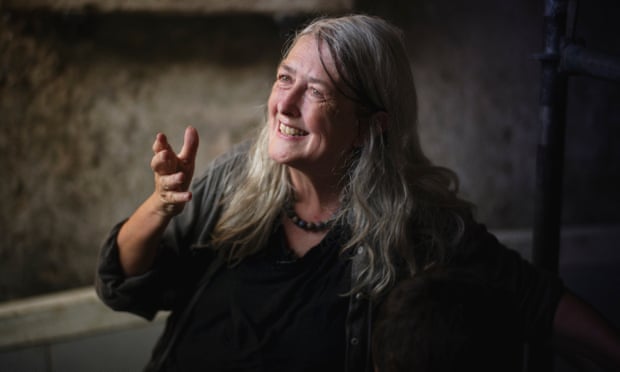
The classicist Professor Mary Beard found herself the focus of a flurry of headlines this week when she stated her refusal to appear in tv history documentaries proposing reconstructions. Or, as she placed it, “B-listing actors dressed up in sheets, saying, ‘Do skip the grapes, Marcus,’ etc”. Actors, or at the least some actors, have been no longer especially thrilled.
Her important point, but, become not anything to do with actors – A-listing, B-listing or in any other case. Her remarks, part of a lecture for individuals of Voice of the Listener and Viewer, an corporation that campaigns for better public-service broadcasting, had been a part of a broader argument approximately the purpose of history on television. What Prof Beard turned into suggesting – in the lecture and in response to questions from the target market – changed into that tv records have to put forward arguments. it can do greater than simply dazzle the viewer with enthusiasm or fantastic visuals (although enthusiasm and beautiful filming are really a treasured part of what television history has to offer).
moreover, records on tv has the ability, she counseled, to spark off the mind of the visitors to “do records” themselves – this is, to apply the intellectual equipment of the subject to adopt the work of reconstruction of their personal minds. once you have offered a viewer with a reconstruction, you've got finished that act of historical imagination for them: you've got closed down the capacity and possibilities. in the end, a reconstruction will present the viewer with one way, and one way handiest, of decoding proof from the past that can regularly, in truth, be introduced to life in a myriad different approaches.
This factor of view may also appear as an alternative tough work for the viewer; and of route reconstruction, in a broader feel, can take many paperwork and serve many purposes. The bronze age web page of Knossos in Crete, for example turned into heavily restored in the 1920s via architect Piet de Jong, working with its excavator (and Manchester parent correspondent) Sir Arthur Evans. those remains, of their contemporary form, have even been referred to as the fine artwork deco in Greece, and the bolstered concrete reconstructions are ancient artefacts in their very own right. although, many visitors find them greater fantastic and provoking than the low rubble partitions of different Minoan sites at the island. (An plain trouble is that it can be difficult for traffic to distinguish the parts of the building dating from the second millennium BC from the ones courting from a century in the past.) in recent times, a experience to an historical archaeological website online – consisting of Akrotiri on the island of Santorini, or to the emperor Nero’s Domus Aurea in Rome – may be better with the aid of seeing laptop-generated imagery of adornment, rooms and homes that exist, for the uninitiated, simplest as instead confusing masonry traces.
Even monuments often taken into consideration unchanging and untouched have often been issue to reconstruction. Stonehenge, for example, which celebrated a centenary in the care of the nation on Friday, has had all forms of intervention, which includes the re-erection of a fallen trilithon (a pair of sarsen stones plus its lintel) in 1958. Non-western cultures, specifically those in which stone has not been a common building fabric, may take a miles much less reverential role on recovery of ancient monuments, happily renewing in present day materials wherein deemed essential. Others take a more romantic view, admiring the dilapidation of ruins for dilapidation’s sake. however truely Prof Beard’s noticeable point is proper: records on television should spark highbrow interest, excitement and scepticism, now not serve up truth on a plate.
No comments:
Post a Comment